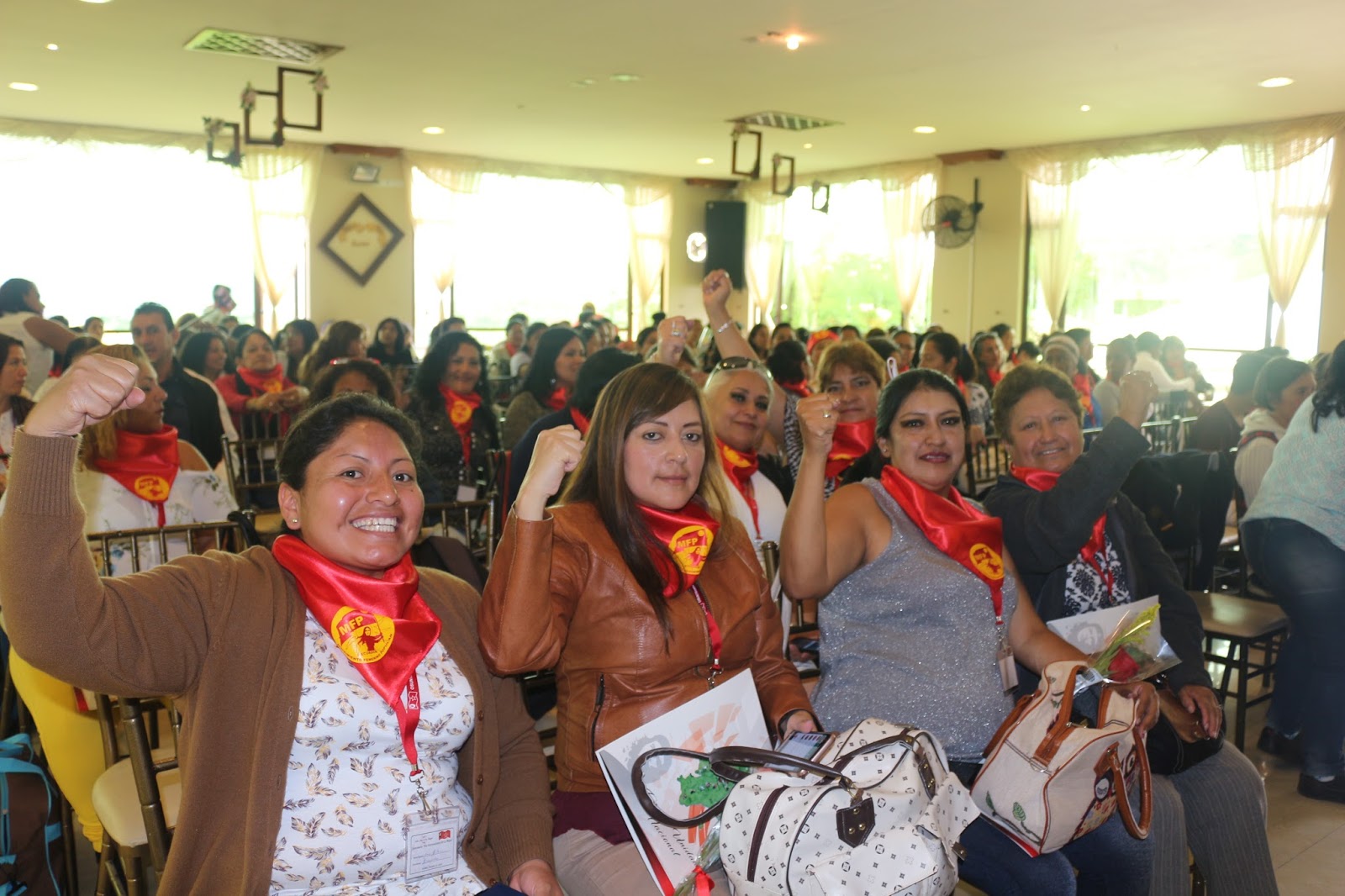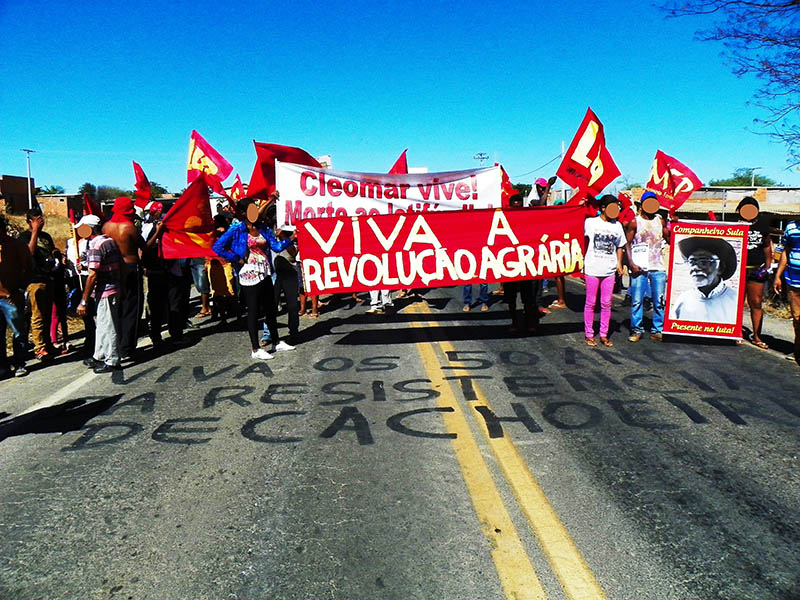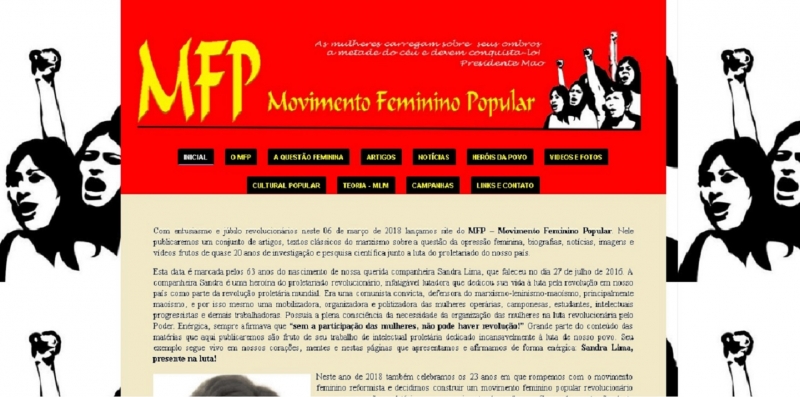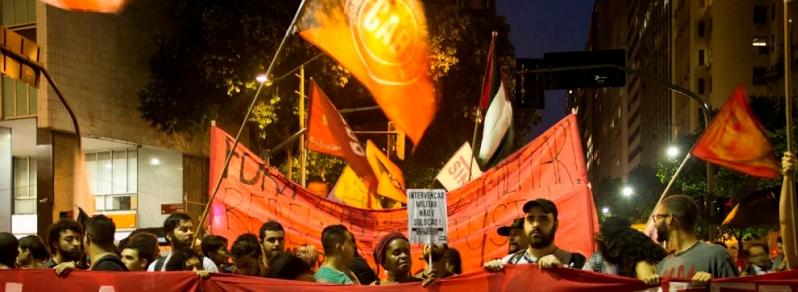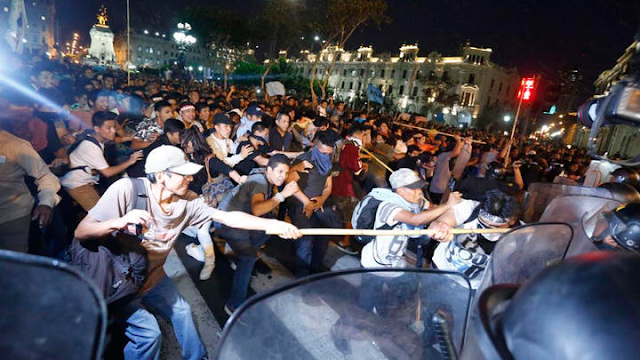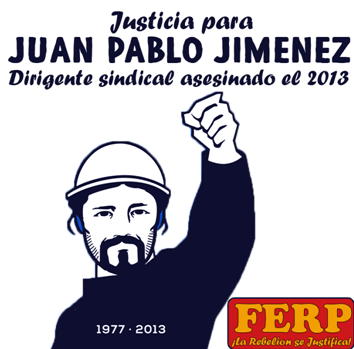Lateinamerika
Lateinamerika
- Details
- Category: Lateinamerika
We publish some of the pictures the comrades from Ecuador shared with us for the 8th of March. The declarations that are to be translated end with these slogans:
Long live the working, exploited and opressed women!
Long live the rebelling, revolutionary and communist women!
Long live the proletarian leadership of the peasants struggle!
Long live the workers-peasants alliance!
Long live the Popular Womens Movement!
Long live Marxism-Leninism-Maoism!
Honour and glory to comrade Lorenza Abimanay!
Honour and glory to comrade Norah!
Honour and glory to comrade Sandra!
- Details
- Category: Lateinamerika
Only in 2017, three massacres and 60 murders took place in the countryside of Brazil and this expresses the sharpening of the reactionary civil war in the countryside. The amazonian region was stage of most of these murders and also two of the massacres: Pau D’Arco, in Pará, and Colniza, in Mato Grosso. Despite this, the masses keep resisting and advancing in their struggle.
- Details
- Category: Lateinamerika
Moving forward in politicizing and organizing women in all parts of Brazil, the Popular Women’s Movement (Movimento Feminino Popular – MFP) on occasion of this year’s 8th of March published two new tools broadening their agitation and propaganda. Alongside a new bulletin a whole new website for the MFP was launched, presenting not only recent activities, actions and reports but also explaining the principals and goals of the MFP and giving a brief overview on the history of the MFP in Brazil.
- Details
- Category: Lateinamerika
Counterreform
The social security counterreform sanctioned by the shift manager Temer which went into effect since November 11, 2017. Despite some adaptations and changes, this is the biggest attack on the labor rights in recent history.
- Details
- Category: Lateinamerika
After the bill 1215 of the Fujimorist congresswoman Rosa Bartra was approved, students carried out a march against the so-called "youth slave law". The law would allow companies to hire students of technical institutes - without paying them at all. The students should just work to obtain experience in "pre-professional internhips". Naturally, the bourgeois Congress and the capitalists ignore that a high amount of students actually have to work to pay FOR their studies in the first place.
- Details
- Category: Lateinamerika
The decree made by the manager of the Republic of Brazil Temer in February 16 for the military intervention in Rio de Janeiro is a measure that promotes the centralization of the different repression apparatus under the command of the Armed Forces.
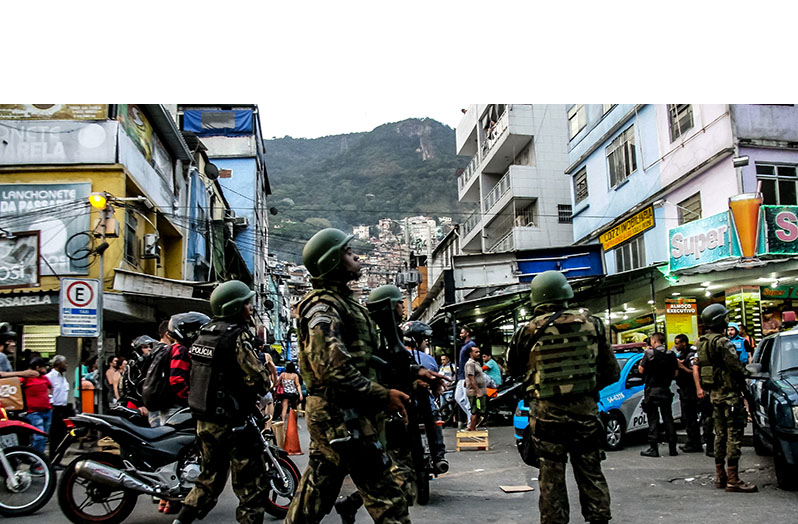
Walter Souza Braga Netto, general of the Military Command of the East (CML) since 2016, who was appointed as the intervener acted in the federal intervention on Espírito Santo in 2017 and also acted during the Olympics in Rio de Janeiro. Netto also appointed the general Richard Fernandes to be the secretary of security in order to promote centralization.
This centralization means a leap in the repression against the people in the city.
To intensify the war actions against the people the commander and General of the Army, Eduardo Villas Bôas, affirmed in a meeting of the Council of the Republic that is necessary to grant "guarantee to act without the risk of a new Commission of Truth is created".
The referred commission had represented no effective advance for the punishment of the crimes of the military regime at all; it was supposed to investigate tortures, murders and disappearing made by the Armed Forces during that time. However, despite not punishing the murderers and torturers, the Commission was inconvenient for some high-ranking officers for eliciting some of their actions.
Also he suggested that the military crimes that will be done during this intervention should only be judged by the Military Justice and also he admits the possibility of the practice crimes as barbarous as the ones perpetrated during the military regime should be admitted.
One day before de minister of Defense Raul Jungmann affirmed that Eduardo Villas Bôas foresaw the necessity of collective arrest warrants in the areas considered conflagrated, which means the military forces will have permission to invade any street, neighborhood, or whole regions.
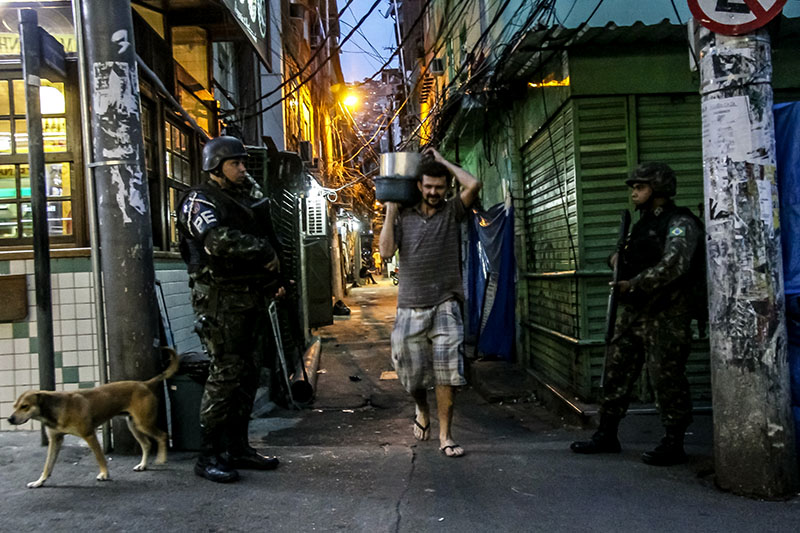
Despite the harsh rains and floodings, the lack of electricity in many areas for long periods and the attack made by the military police in the favelas, the people are raising in revolt practically every day in many different places of the city. Only organizing this growing revolt can the people resist the attacks of the old State and create the New Power in the favelas.
People revolted after the murder iof a worker in Duque de Caxias municipality in the outskirts of Rio de Janeiro in February 21.
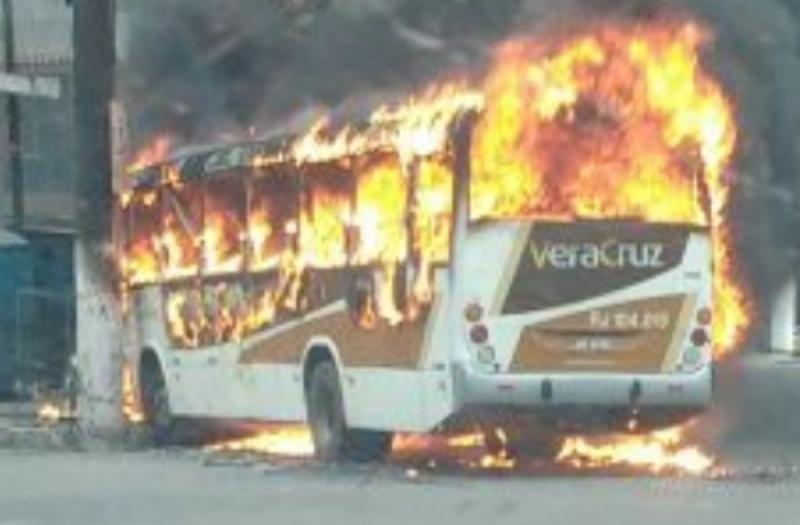
During the revolt in Duque de Caxias the people burnt a bus and raised a burning barricade in the street.
People revolted after a woman was shot by the police in Cantagalo favela, Rio de Janeiro January 22.
- Details
- Category: Lateinamerika
We publish a not revised english translation of the document posted on the blog https://serviraopovo.wordpress.com/:
Celebrate the 170 years of the Manifesto of the Communist Party
Centre for Studies of the marxism-leninism-maoism
- Details
- Category: Lateinamerika
Five years ago – on the 21th of February 2013 - Juan Pablo Jiménez, himself a trade-union activist, was shot dead on his way to work at the electrical engineering company Azeta. Soon after, protests started as the police investigations seemingly went nowhere. In the end, the police produced some 16 year old gunslinger who supposedly shot dead Jiménez from a distance of 1035 meters with a 9mm handgun. A bogus story never believed by his friends, family and activists as he was due to take part in a meeting denouncing the companies anti trade-union practices the very day after he was murdered. Commemorating him and demanding justice, a combative demonstration was held last week.
